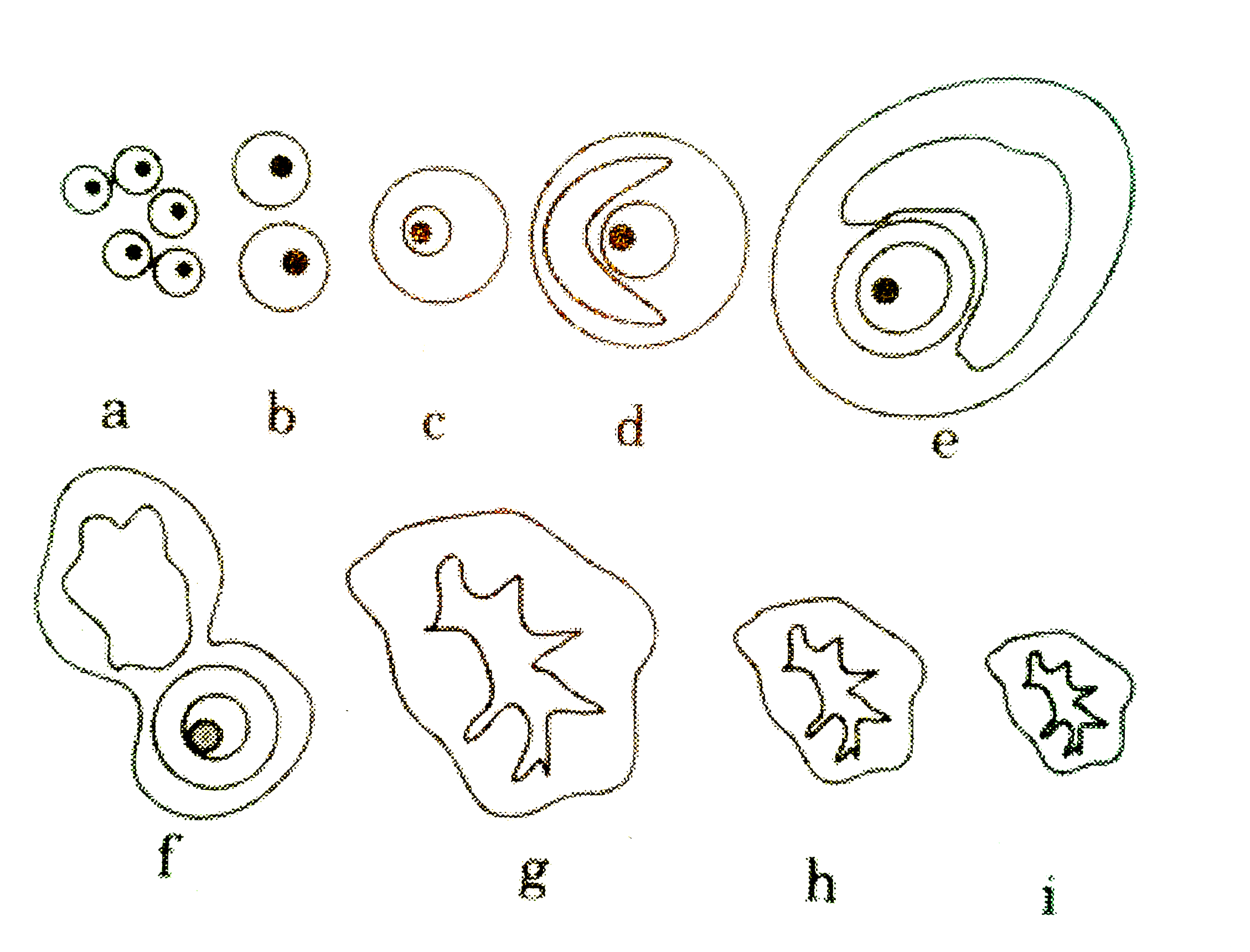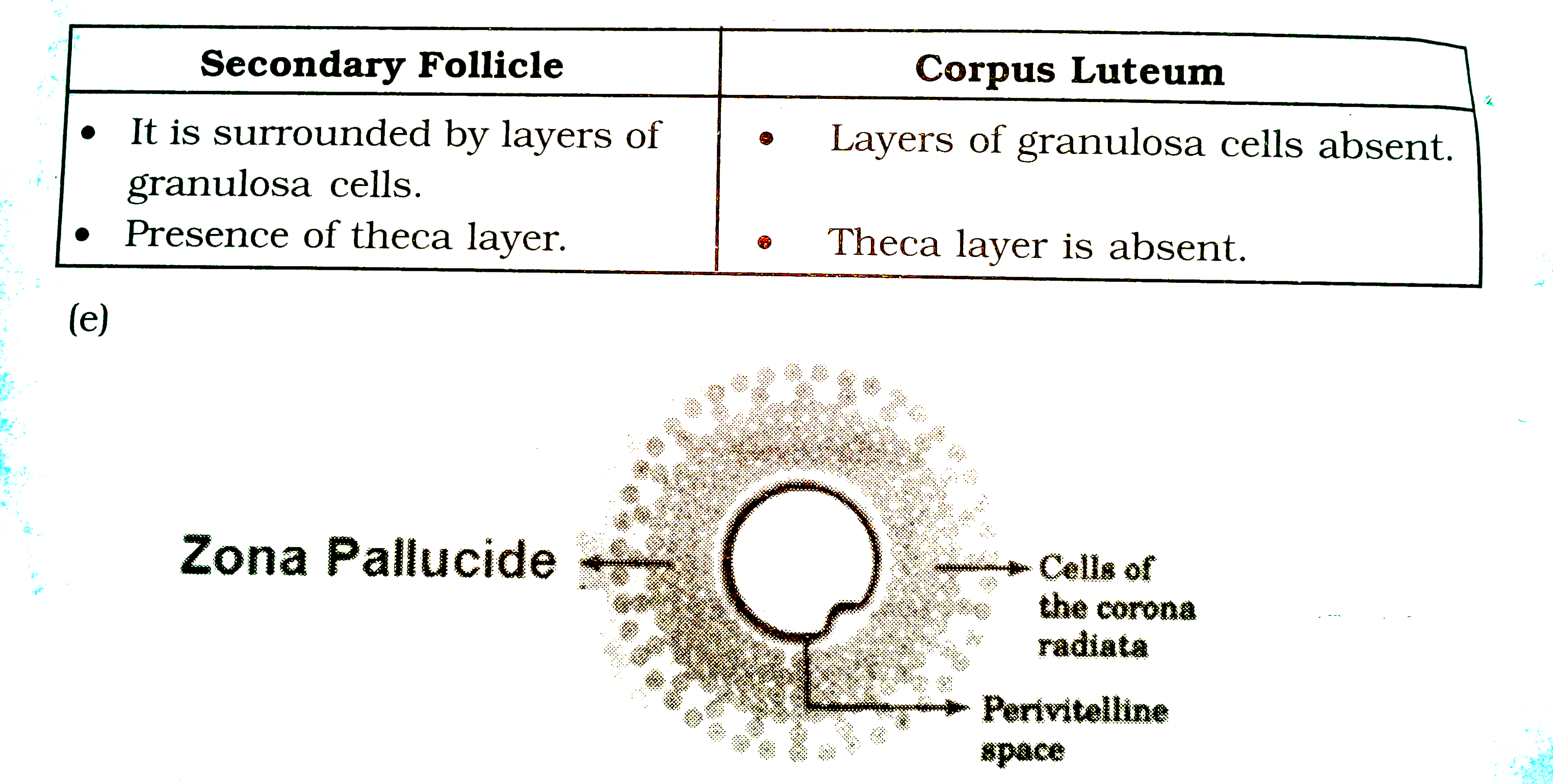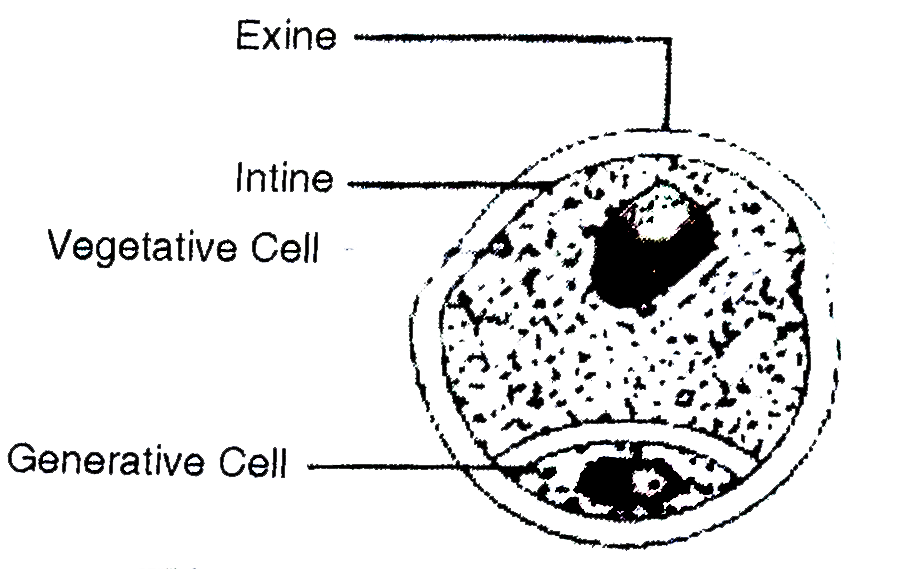The following is the illustration of the sequence of ovarian events (a - 1) in a human female.
(a) Identify the figure that illustrates ovulation and mention the stage of oogenesis it represents.
(b) Name the pituitary hormone that has caused the above mentioned event.
 Solution in Kannada
Solution in Kannada
(a)Figure 'f illustrates ovulation. It represents the ovulatory stage of oogenesis
(b) Luteinizing Hormone (LH) is the pituitary hormone released during ovulation
(c) In anticipation of receiving the fertilized egg. the endometrium of the uterus gets thickened and also the blood supply to the endometrium increases
(d) In the figure (c) stage represents the secondary follicle and the th) stage represents the degenerating corpus luteum

Topper's Solved these Questions
- REPRODUCTIONBOOK - TRUEMAN BIOLOGYCHAPTER - REPRODUCTIONEXERCISE - SECTION -C
22 Videos
- Protista BOOK - TRUEMAN BIOLOGYCHAPTER - Protista EXERCISE - ASSERTION AND REASON
6 Videos
- Reproduction In OrganismsBOOK - TRUEMAN BIOLOGYCHAPTER - Reproduction In OrganismsEXERCISE - MULTIPLE CHOICE QUESTION
131 Videos
Similar Questions
Draw a labelled diagram of the sectional view of a mature pollen grain of angiosperms. Explain the function of generative cell and vegetative cell

View Solution[A] : Contractile vacuoles in protists show systole and diastole .
[R] : Contractile vacuoles help in osmoregulation .
View SolutionRegeneration was first discovered in Hydra by
View SolutionExplain the ovarian and uterine events that occur during a menstrual cycle in a human female, under the influence of Pituitary and Ovarian hormones respectively.
View SolutionComment on the corresponding ovarian and pituitary hormone levels during these events.
View SolutionThe following is the illustration of the sequence of ovarian events (a - i) in human female.
ltimg src="https://d10lpgp6xz60nq.cloudfront.net/physics_images/SB_BIO_XII_SET_I_2012_E01_032_Q01.png" width="80%"gt
(i) Identify the figure that illustrates ovulation and mention the stage of oogenesis it represents.
(ii) Name the ovarian hormone and the pituitary hormone that have caused the above mentioned event.
(iii) Explain the changes that occur in the uterus simultaneously in anticipation.
(iv) Write the difference between 'c' and 'h'
(v) Draw a labelled sketch of the structure of a human ovum prior to fertilization.
View SolutionThe following is the illustration of the sequence of ovarian events (a - 1) in a human female. (a) Identify the figure that illustrates ovulation and mention the stage of oogenesis it represents.
(b) Name the pituitary hormone that has caused the above mentioned event.
(c) Explain the changes that occur in the uterus simultaneously in anticipation
(d) Write the differences between 'c and 'h'.
(e ) Draw a labelled sketch of the structure of a human ovum prior to fertilization.

View SolutionThe following is the illustration of the sequence of ovarian events "a" to "I" in a human female : Identify developing follicle, mature follicles and corpus luteum.
View SolutionThe following is the illustration of the sequence of ovarian events (a-i) in a human female.

(a) Identify the figure that illustrates ovulation and mention the stage of oogenesis it represents.
(b) Name the ovarian hormone and the pituitary hormone that have caused the above mentioned events.
(c) Explain the changes that occurs in the uterus simultaneously in anticipation.
(d) Write the difference between C and H.
View SolutionThe following is the illustration of the sequence of ovarian events (a-i) in a human female. (a) Identify the figure that illustrates ovulation and mention the stage of oogenesis it represents. (b) Name the ovarian hormone and the pituitary hormone that have caused the above mentioned events. (c) Explain the changes that occurs in the uterus simultaneously in anticipation. (d) Write the difference between C and H.
View SolutionExplain the ovarian and uterine events that occur during a menstrual cycle in a human female, under the influence of Pituitary and Ovarian hormones respectively.
View SolutionThe following is the illustration of the sequence of ovarian events (a - i) in human female.
ltimg src="https://d10lpgp6xz60nq.cloudfront.net/physics_images/SB_BIO_XII_SET_I_2012_E01_032_Q01.png" width="80%"gt
(i) Identify the figure that illustrates ovulation and mention the stage of oogenesis it represents.
(ii) Name the ovarian hormone and the pituitary hormone that have caused the above mentioned event.
(iii) Explain the changes that occur in the uterus simultaneously in anticipation.
(iv) Write the difference between 'c' and 'h'
(v) Draw a labelled sketch of the structure of a human ovum prior to fertilization.
View SolutionThe following is the illustration of the sequence of ovarian events (a - i) in human female.

(i) Identify the figure that illustrates ovulation and mention the stage of oogenesis it represents.
(ii) Name the ovarian hormone and the pituitary hormone that have caused the above mentioned event.
(iii) Explain the changes that occur in the uterus simultaneously in anticipation.
(iv) Write the difference between 'c' and 'h'
(v) Draw a labelled sketch of the structure of a human ovum prior to fertilization.
View SolutionThe following is the illustration of the sequence of ovarian events (a - 1) in a human female. (a) Identify the figure that illustrates ovulation and mention the stage of oogenesis it represents. (b) Name the pituitary hormone that has caused the above mentioned event. (c) Explain the changes that occur in the uterus simultaneously in anticipation (d) Write the differences between 'c and 'h'. (e ) Draw a labelled sketch of the structure of a human ovum prior to fertilization.
View Solution
Look at the above sequence and mention the events A, B and C
View Solution
